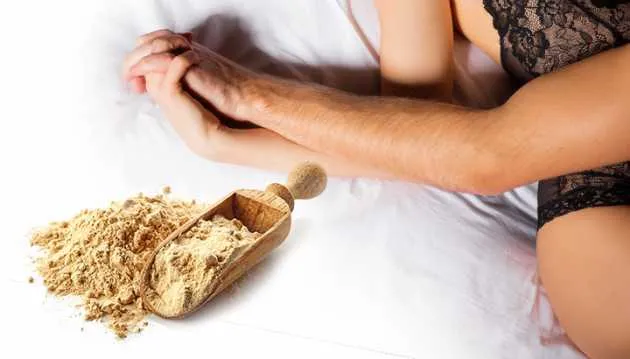If you haven’t already tried it, the maca root (Lepidium meyenii) is one versatile superfood to start paying more attention to. Like cauliflower, broccoli and cabbage, maca belongs to the family of cruciferous vegetables that is grown in the high mountains of South America, and most often in Peru. In South America, maca has been consumed and known for its many health benefits for thousands of years. Here, we are just starting to understand the great healing powers of this pleasant-tasting root.
Nutrients in maca root
Usually, maca comes in the form of powder. After harvest, it is ground down and packaged for our consumption. It is highly nutritious, comprised of 18 percent protein, 76.5 percent carbohydrates, 5 percent fat and 8.5 percent fiber. It also contains more than 20 amino acids, vitamins B1, B2, C and E, numerous minerals like calcium, magnesium, copper, zinc, potassium, manganese, sulphur, phosphorus, selenium, iron and potassium, and over 20 fatty acids such as lauric acid, steric acid, linolenic acid and many more.
Here are some reason you may want to incorporate maca into your diet.
1. Maca for improved sex life
Low libido is a common symptom of adults around the world. This may be due to stress but could also result from poor adrenal and thyroid function. Maca has been proven to improve libido in both men and women, although don’t expect results overnight. It is likely going to be a couple of weeks before you notice any difference. One study found that maca can help improve the function of the endocrine system which the thyroid and adrenals are a part of. So, if low libido seems to be an issue in your life, try some maca. With all its nutrients, it definitely can’t hurt.
2. Maca for fertility in men

The studies that found that maca increased fertility in men and improved quality of semen weren’t huge, but they were double-blind, placebo-controlled and the results were quite encouraging. Men who took maca root supplements for several months experienced an improvement in both their fertility and semen quality, all without changing hormone levels.
3. Maca to improve symptoms of menopause
If you are a woman going through menopause, you’ll likely experience any one or all of these symptoms: vaginal dryness, hot flashes, irritability and poor sleep. We have a decrease in estrogen levels to blame for these common and unpleasant side effects of “the change.” And we use a number of drugs and ointments to relieve these symptoms and make this time a little easier. Turns out, maca may help with some of these symptoms, particularly the hot flashes and sleep interruption. But with that said, the results have been deemed “too limited to draw firm conclusions” and the wait for larger studies is on. It’s up to us, ladies, once again.
4. Maca to improve your mood
It’s normal to have a cranky day now and then, but if you find yourself stuck in a bad mood on a regular basis, you may want to give maca a try, especially if you also happen to be a woman going through menopause. A study found that maca has been able to improve mood in a group of postmenopausal women. Maca’s flavonoids are at least partially credited with this positive effect on mood.
5. Maca to boost energy and sports performance
Bodybuilders love maca as a supplement. There are claims that maca helps with the gain of muscle and the building of strength, though no studies have been performed to support this claim. What we do know, however, is that maca has improved performance and endurance in animals during controlled studies. Plus, in a study of eight cyclists, the results were promising. All participants improved their times in a 40-kilometer ride after taking maca as a supplement. Once again, larger studies would be helpful, but even those small studies provide good insight into what maca is potentially capable of.
6. Maca to improve brain function and memory
Peruvians have used the maca root to improve brain function in school children for a long time. Research in animals has found that maca actually does have an effect on brain function and memory, so using it in our diet may just have a similar effect.
How often to take maca
While there is no specific recommended use, a good starting point would be one tablespoon per day. Some experts recommend that people use maca for four to six months as a supplement, then pause it for two weeks before resuming. This is to get the most out of your maca supplement. To find out what’s right for you, make sure to check in with a healthcare provider you trust.
How to use maca
No matter what you want to use it for, maca can be easily incorporated into a variety of recipes. It makes an excellent addition to your morning smoothies or coffee beverages. You may even add a little bit of maca powder to baked goods, although some prefer not to heat maca to high temperatures. Since maca does have a mildly sweet flavor to it, you’ll want to be aware of any changes in taste when using it in baked goods and other recipes.
Side effects of maca
In healthy people, maca should not cause any negative side effects. However, some doctors warn that consuming maca while also taking certain hormones may alter the results. If you are taking any kinds of hormones or prescription medications, it is advisable to see your doctor before you start using maca.
Where to buy maca
You can find maca as a powder or capsule in just about every health food store. Just make sure that you purchase good quality products that don’t have other ingredients mixed in with them.
— Ute Mitchell

